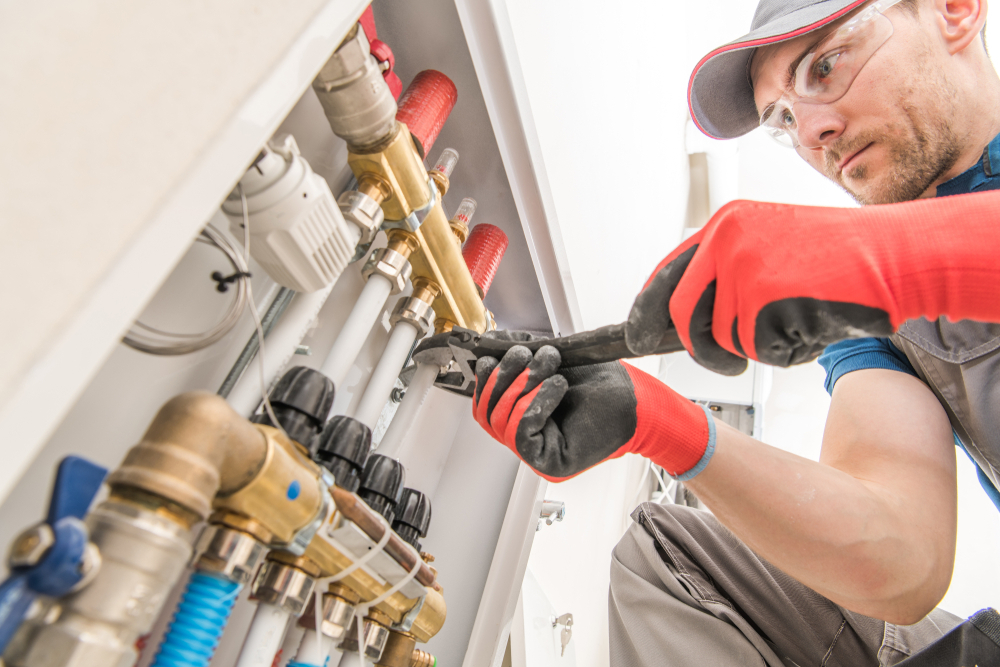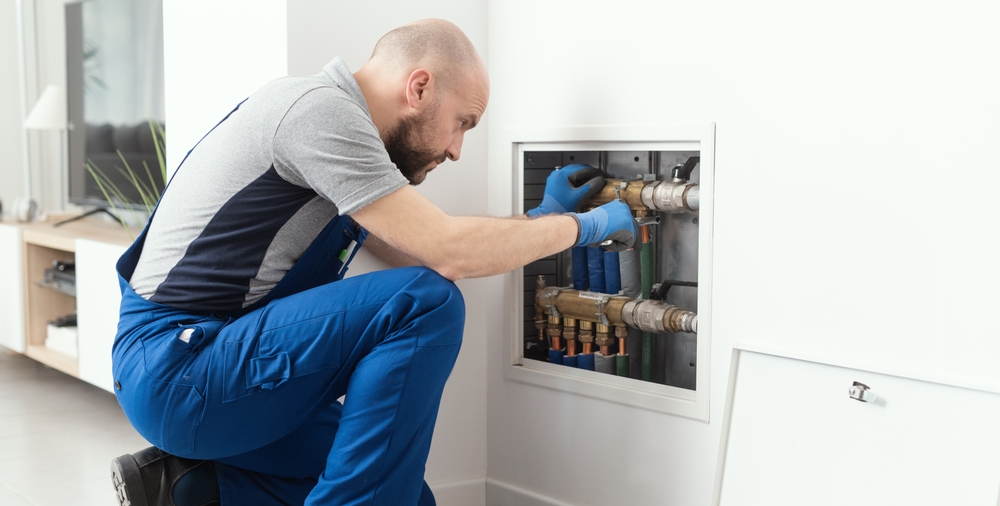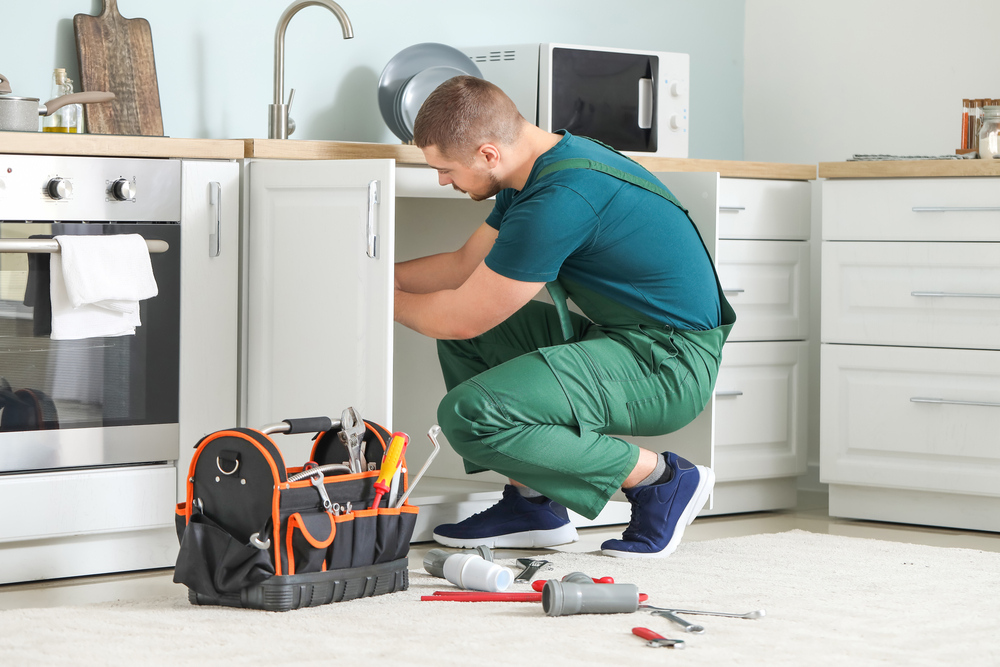Introduction to Sustainable Plumbing
As environmental issues becoming more important, sustainable plumbing is also more pertinent. It speaks about plumbing systems and techniques meant to lower water and energy consumption and thereby minimize waste. Sustainable plumbing is not only a buzzword but also a must for future-proofing businesses and residences in a world of growing resource constraint.
Fundamentally, sustainable plumbing is meant to help to protect valuable resources. Adopting technology and practices that lower water consumption, increase energy efficiency, and make environmentally friendly materials used helps Long-term sustainability depends on integrating these systems as our earth struggles with declining resources and climate change.
Beyond personal homes, sustainable plumbing is quite important. Energy efficiency and water conservation affect ecosystems, communities, and businesses in general as well as personally. Sustainable plumbing helps to create a better earth by lowering waste and besting resource utilization. For individuals trying to save money, boost their health, and minimize their environmental impact, however, it also provides clear advantages for homes.
Benefits of Sustainable Plumbing
Environmental Benefits
The good effect of sustainable plumbing on the environment is among its main benefits. Since freshwater supplies are limited in many areas of the globe, the systems center on lowering water waste, a vital issue. Low-flow faucets and dual-flush toilets are among the effective plumbing fixtures that significantly cut water use, therefore lessening the demand on the local water supply.
Apart from water preservation, environmentally friendly plumbing lowers electricity consumption. A good amount of residential energy use is related with traditional water heating. By using renewable energy, sustainable technologies—like solar water heaters—offer a green substitute. This modification helps to minimize carbon emissions by reducing reliance on fossil fuels, therefore directly addressing climate change.
Furthermore, sustainable plumbing lessens the environmental effect of the components in plumbing systems. Using environmentally friendly materials, including recycled metal or PVC substitutes, helps to maintain natural ecosystems and lower manufacturing process pollution by so lessening the demand for fresh resource extraction.

Cost Savings
Apart from benefiting the surroundings, sustainable plumbing can help to save a lot of money. Utility bills will drop for homeowners who replace energy-saving systems and water-efficient fixtures. Low-flow showerheads, for instance, can save up to 50% of water consumption, which over time would be quite notable.
Furthermore less energy is used by energy-efficient water heating systems such as solar-powered heaters or tankless water heaters, therefore reducing monthly energy costs. Although the initial outlay for sustainable plumbing could seem more, over time the savings on water and energy make it a reasonable choice. A few years of lower utility expenses will show homeowners a return on investment.
Health Benefits
Sustainable plumbing has health benefits beyond only financial and environmental ones. Either by ineffective water filtering or the use of dangerous materials like lead pipes, traditional plumbing systems can help to contaminate water supplies. Sustainable plumbing solutions concentrate on safer drinking water by means of cleaner water sources and materials free of leaching dangerous substances.
Furthermore, environmentally friendly plumbing techniques lower the risk of mold and mildew, which flourish in moist surroundings produced by leaks or ineffective systems. Emphasizing energy efficiency and water conservation usually results in systems better controlling moisture levels, therefore improving the interior air quality.
Key Principles of Sustainable Plumbing
Sustainable plumbing systems are designed and implemented under the direction of several fundamental ideas. These ideas cooperate to optimize resource economy and reduce environmental effect.
Water Conservation
The core of sustainable plumbing is water economy. There is little freshwater available worldwide, hence conservation of it is absolutely vital. Designed to cut water waste are low-flow fixtures, effective irrigation systems, and greywater recycling. Easy fixes like fixing leaks and installing dual-flush toilets help to stop thousands of gallons of water being wasted yearly.
Greywater recycling systems also let homes recycle wastewater from laundry machines, showers and sinks for non-potable uses like irrigation. Without sacrificing family necessities, this habit drastically lowers freshwater consumption.
Energy Efficiency
Another important factor of sustainable plumbing is energy economy. Although a lot of home energy is consumed in heating water, sustainable technologies are meant to lower this load. Energy-efficient appliances, tankless water heaters, and solar water heaters help to cut energy usage, so lowering utility bills as well as environmental impact.
Homes can cut their dependency on non-renewable resources by choosing solar power or optimizing water heater efficiency. Lowering greenhouse gas emissions and a smaller carbon footprint follow from this.
Use of Eco-Friendly Materials
In sustainable plumbing, environmentally friendly materials are absolutely vital. Many times, conventional plumbing systems make use of materials either impossible to recycle or detrimental to the environment. PEX (cross-linked polyethylene) piping, which is flexible, long-lasting, and less prone to leaking than conventional metal piping, is one of sustainable plumbing’s preferred materials—either recycled or biodegradable.
Better still than plastic substitutes are copper, stainless steel, and other metals, which can be recycled. These products not only cut waste but also provide longevity and durability, therefore lowering the demand for regular repairs or replacements.
Proper Waste Management
Another guiding concept in sustainable plumbing is good waste management. From installation to maintenance, sustainable solutions are meant to cut waste at all phases of the plumbing lifetime. By helping trash into useable compost, for example, installing composting toilets lessens the load on wastewater treatment facilities. Reducing water use also decreases the generation of wastewater, therefore relieving municipal systems of pressure.
Homeowners can reduce wastewater by using greywater recycling or rainwater collecting, therefore encouraging a more circular method of water use.

Technologies and Practices for Sustainable Plumbing
Many technology and methods can enable sustainable plumbing. These developments are meant to maximize the utilization of water and energy while cutting waste.
Low-Flow Fixtures
Reducing water use depends critically on low-flow fixtures including toilets, showerheads, and faucets. Without compromising performance, these fittings restrict the water flow through them. A low-flow showerhead, for instance, can cut water use by up to 50%, therefore saving the energy needed for heating as well as the water.
Another effective fix are dual-flush toilets. These toilets give two flush choices: one for solid waste, which uses more water, and one for liquid waste, which uses less. Thousands of gallons of household water use can be cut annually by this easy addition.
Greywater Recycling
A mainstay of sustainable plumbing is greywater recycling. Relatively clean wastewater from sinks, showers, and washing machines—greywater—can be cleaned and utilized again for irrigation or toilet flushing. Greywater recycling helps homes greatly lessen their dependency on freshwater sources.
In places prone to drought, where water scarcity is somewhat common, this habit is especially helpful. Homeowners are starting to find greywater recycling devices more easily available and a straightforward but efficient approach to save water.
Solar Water Heating
One renewable energy source that lessens dependency on generally fossil-fuel-powered conventional water heaters is solar water heating. Solar water heaters absorb sunlight using solar panels, which then transform it into heat used to warm water. With up to 80% of a household’s hot water demand met by this system, carbon emissions and energy usage can be considerably reduced.
Although solar water heaters have an initial outlay, environmentally aware homeowners find them to be an attractive option because of the long-term energy savings on their bills.
Rainwater Harvesting
Still another technique encouraging water conservation is rainwater collecting. Usually for irrigation, flushing toilets, or even drinking—with appropriate filtration—this method entails gathering and storing rainwater for later use. By lowering the need for municipal water sources, rainwater collecting helps to preserve freshwater supplies.
Rain barrels or more sophisticated systems let homeowners gather rainwater for usage during dry spells or when water restrictions are in effect.
Efficient Irrigation Systems
Effective irrigation systems save water wastage in landscaping via either drip irrigation or smart sprinklers. By delivering water straight to plant roots, these devices help to lower runoff and evaporation. Additionally designed to water plants depending on weather, smart sprinklers help to minimize over-watering and hence further water conservation.
Effective irrigation systems help homeowners lower water use in their yards and gardens, therefore promoting more sustainable water use.
Role of Individuals and Professionals in Promoting Sustainable Plumbing
Simple Steps Individuals Can Take
Encouragement of sustainable plumbing techniques depends much on individuals. Little chores like changing leaking faucets, adding low-flow fixtures, and running water-efficient appliances can add a lot of difference. Shorter showers or turning off the tap while brushing their teeth will help homeowners cut water wastage as well.
Moreover, cutting chemical use and utilizing environmentally friendly cleaning solutions help to stop dangerous compounds from getting into the water supply, therefore promoting better ecosystems.
Importance of Hiring a Licensed and Certified Plumber
Using sustainable plumbing systems calls for hiring a licenced and certified plumber. These experts guarantee correct and effective installation of systems since they are taught in the most recent technologies and best practices. Helping homeowners make wise decisions, certified plumbers can also offer insightful guidance on water saving, energy efficiency, and environmentally friendly products.
Many government incentives and rebates also apply for environmentally friendly plumbing improvements, although these usually call for expert installations. Hiring a licensed plumber guarantees eligibility for these programs, therefore lowering the expenses of sustainable plumbing even more.
Government Regulations and Incentives
Promoting sustainable plumbing depends much on government rules and incentives. Building rules in many areas call for water-efficient fixtures in newly constructed homes. To inspire businesses and homeowners to use sustainable plumbing techniques, governments also provide grants, tax credits, and refunds.
These initiatives increase the availability of sustainable technology since they help to offset their initial expenses. Using these incentives allows households to save money and lessen their environmental effect.
Challenges and Solutions for Implementing Sustainable Plumbing
Cost Barriers
The initial cost of sustainable plumbing is one of its main obstacles in application. The supposed cost of environmentally friendly technologies causes many homeowners to be reluctant to make investments in them. Though the initial outlay could be more, sustainable plumbing is a wise decision over time given the long-term savings on water and energy expenses.
Rebates and government incentives help to offset these expenses, therefore enabling more reasonably priced sustainable plumbing. Moreover, as technologies spread, their prices should drop, therefore reducing the financial obstacle.
Lack of Awareness
Lack of knowledge on the advantages and availability of sustainable plumbing systems presents still another major obstacle. Many homeowners just know nothing about the choices they could have or how their plumbing decisions affect the surroundings.
Governments as well as environmental groups can run educational programs to increase awareness and inspire more people to follow sustainable living. Clear knowledge on the advantages of sustainable plumbing helps homeowners make environmentally friendly decisions.
Training and Education for Professionals
The plumbing business itself has to change as well to satisfy environmental needs. Many plumbers might not be conversant with the most recent technologies or greatest ideas for energy and water economy. Funding educational and training initiatives for plumbers guarantees that experts are ready to install and maintain environmentally friendly solutions.
Sustainable practices can be the emphasis of courses and certifications available from plumbing companies and certification authorities. This helps the surroundings as well as gives plumbers a competitive advantage in the industry.
Collaboration Between Stakeholders
Widespread acceptance of sustainable plumbing depends on cooperation amongst homes, plumbers, governments, and manufacturers. While producers generate the required technology, governments can set the standards and offer incentives. Plumbers build these systems; homeowners help by using water-saving techniques.
This all-encompassing strategy guarantees that everyone helps to build a more sustainable future, therefore generating a favorable knock-on effect throughout the society.

Conclusion
Sustainable plumbing is a need rather than only a choice now. Sustainable plumbing systems provide several environmental, financial, and health advantages by means of water conservation, energy economy, and waste minimization. Both homeowners and professionals have to give these behaviors top priority if we are to save our planet and next generations.
As we have discussed, long-term sustainability depends on the sustainable plumbing ideas—water conservation, energy efficiency, environmentally acceptable materials, and waste management. Low-flow fixtures, greywater recycling, and solar water heating are among the tools at hand to have a major influence.
Though the problems are genuine, the answers are within grasp. By use of government incentives, education, and professional training, we can remove obstacles and bring sustainable plumbing to pass. This is the moment for both people and experts to act so that sustainable plumbing becomes the norm in every house and company.
Plumbing Services CA
https://maps.app.goo.gl/31Yt4rhDrainzNJ4A
(279) 203-0765
https://plumbingservicesca.com/
